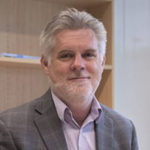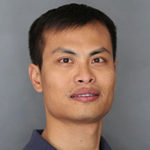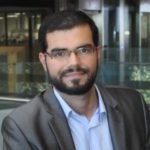CHELTech is a deep-tech startup that is commercializing innovative technology for highly efficient, economical production of hydrogen from water with inexpensive materials and zero emissions. Our platform technology has numerous other target applications in areas of catalysis, gas capture and storage.

Sean C. Smith, PhD
Co-Founder, CEO and CTO
Sean Smith is the Director of the NCI and is conjointly Professor of Computational Nanomaterials Science and Technology at the Australian National University. He has extensive theoretical and computational research experience in chemistry, nanomaterials and nano-bio science and technology.
Sean has published over 260 refereed journal papers with more than 18000 citations. In 1998 he was elected Fellow of the RACI. In 2006 he was recipient of a Bessel Research Award of the Alexander von Humboldt Foundation in Germany. In 2012 he was elected Fellow of the American Association for the Advancement of Science (AAAS) and in 2015 he was elected Fellow of the Institution of Chemical Engineers (IChemE). He received his PhD in theoretical chemistry from the University of Canterbury, New Zealand, in 1989.

Meiyun Chang-Smith, MA, PhD
Co-Founder, President and COO
Dr. Meiyun Chang-Smith has over 20 years of combined experience in international business, research and development, higher education and national lab management. Possessing a global outlook, she has studied and worked in Asia, Europe, North America and Australasia and is multi-lingual in Chinese, English, German, French and Japanese.
In the earliest phase of her professional career, she worked in export and marketing for PC manufacturers in Taiwan. She specialized in business development, planning and implementation of international marketing and export operations. Chang-Smith was Founding Manager of the Centre for Computational Molecular Science at The University of Queensland, covering strategic planning, research outreach and operations. She was Associate Director for Education at the University of Tennessee/Oak Ridge National Laboratory (ORNL) Joint Institute for Neutron Sciences, engendering and managing a collaboration amongst leading professors and scientists from over 20 top ranking universities in the US and internationally to produce remarkably successful online collaborative graduate courses in neutron science.
Following her passion for environmental sustainability, she has co-founded CHELTech, which seeks to commercialize innovative catalysis technology for producing affordable hydrogen.

Xin Tan, PhD
Research Scientist
Dr. Xin Tan’s specific research involves theoretical and computational studies of electrocatalysis; gas capture; energy storage and conversion; as well as structure and self-assembly and transport phenomena within low-dimensional nanomaterials.
Xin Tan received his PhD in condensed matter physics at the Sun Yat-sen University, China, in 2008. Following an Alexander von Humboldt Fellowship at the Fritz-Haber-Institut der Max-Planck-Gesellschaft (Germany) and postdoctoral appointments at Argonne National Laboratory (USA); the University of Puerto Rico (USA); and UNSW Sydney (Australia); he moved as a central member of Professor Sean Smith’s team to the Department of Applied Mathematics at the Research School of Physics and Engineering, Australian National University in 2017.

Hassan Tahini, PhD
Research Scientist
Dr. Hassan Tahini is a computational materials scientist, currently working as a research fellow at the Australian National University. Working at the nexus of materials’ chemistry, physics and engineering, Hassan’s research interests align with several thrusts covering materials for energy applications, catalysis and fundamental physical properties of materials.
Hassan graduated with a BSc (Hons) and MSc in Physics from the University of Sierra Leone and Imperial College London, respectively. This was followed by a PhD at the Department of Materials Engineering at Imperial College which was awarded in 2014. Hassan has undertaken postdoctoral research in the group of Prof Udo Schingenschloegel at KAUST in 2014 and Prof Sean Smith at UNSW Sydney (2015-2017) and subsequently at the Australian National University. He has over 40 publications in the fields of materials chemistry and physics.
